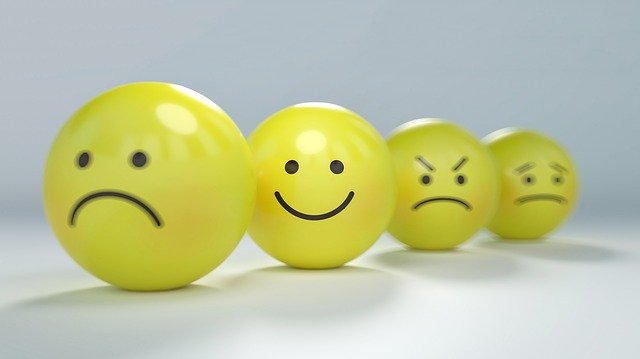COVID Practicing Fatigue? The puzzling phenomenon!
My students know they can always talk to me about practicing challenges, as can my Music Theory for the Bass Player cohort participants. I have been getting quite a number of emails, posts to my Facebook Group, and comments on the topic of “COVID practice fatigue” (some even go so far as to use the words depression or trauma).
The tenor of these notes is similar. Something along the lines of:
I know I should be grateful. So many have lost so much – from loved ones or their own health to a basic sense of safety (going grocery shopping or going to frontline jobs), from losing entire livelihoods/jobs/businesses/houses to being able to mark key life transitions such as graduations or other celebrations. I am – considering all that – doing okay! Like, more than okay! Why, then, am I feeling so “off”? Why am I having such a hard time concentrating and practicing?
Many have also reported just being confused about what they are experiencing – just a general sense of emptiness and lack of motivation. Like so many things, acknowledging an experience in and of itself can be very helpful.
It may also help to know that if this is you – you are definitely not alone!
We humans are way more connected on some levels than we consciously realize. Even if it wasn’t our loved one who died alone without us holding his or her hand, we still feel that trauma in our own bones when hearing about others.
Compassion, fear, uncertainty… it’s no wonder that we feel a bit off. And that “off” part in us may cause us to feel that playing an instrument (or doing anything at all for ourselves) is petty, pointless, or downright frivolous right now given what some others are facing
First of all, I want to encourage you to please be gentle with yourself!
Then, if you find yourself in an unmotivated state of funk (the bad kind!), here are a few ideas that might help you deal with these feelings.
Express your feelings musically
Musicians, and artists in general, have a longstanding tradition of expressing their emotions through their art. Sometimes the inspiration comes from some type of pain or uncertainty in their lives, and often they recount how their art allows them to express these feelings in ways that words alone can’t. Then a cool thing happens when this artful expression connects with their audience who are comforted by the knowledge that “they are not alone” and that others are trying to figure things out too.
When faced with a challenge such as COVID fatigue this one can be tricky though, because when tasked with “writing something”, feelings of pressure and “not good enough” can emerge. Set those voices aside: “I officially absolve you from writing something that is perfect… or important, or holds up to critic’s scrutiny…or is meant to cement your reputation as an eminent artist”. Give it a try and approach it from a non-serious place.
I used to ask kids in my music school to play anger, a thunderstorm, sadness, or a train going up a mountain. They usually had an easy time creating those sounds.
Why not try to play the funk (the bad kind!) you’re feeling and turn it into the good kind?
Or play a compassionate song for one of the many who are negatively affected by the current situation. Musicians (all artists really) who express how they feel about current events in an engaging way, or who manage to capture the vibe around them, can help their audience realize that they are not alone in what they experience, and that there can be hope. Artists can help build community.
Create a reason to pick up your bass
How about making a video with someone (or for someone)?
When COVID first hit, I knew I had to do something creative to stay sane. I missed my bandmates! I missed gigging and connecting with an audience. So I initiated a video collaboration. I have written about this online video collaboration here with instructions on how to do this. (One easy to use, simple way to collaborate with friends (or even total strangers, which is super cool!) is with an app called Acapella). Even though the connection with my band happened exclusively in cyberspace, it brought us together, reminded us that there is good in the world and that music is a great gift – both to give and to be able to perform.
Having a creative goal like this can do wonders to balance your inner well being. You being the instigator will call you to task. And, it is nice to gift your family and friends with an uplifting song.
Instead of Rehearsing…
This tip has helped one of my students recently: Use the time you ordinarily would have spent rehearsing to meet online with your bandmates and listen to music together! Everyone can come up with a short watch list. Share your comments about the music. One of these songs may well make its way on to your band’s actual setlist, inspire you to create a cover version or write something in the same vein. But even if that doesn’t happen – it is just nice to spend time with your buddies and talk music! Enjoy!
Play something you used to know very well
I used to write these super ambitious lists: songs to learn, hours to practice, recordings to make, songs to write and drills to do. If you need to break the spell of the bad-kind-of-funk, put all these lists aside. They’ll still be there for you later on. Instead, pick a song you used to know very well. Maybe you played it with your band and it always got people dancing. Or it got you the gig at an audition. Or someone paid you a nice compliment. Even if it’s Freebird or Stairway – just play it!
It can help you feel connected and it’s just nice to sense your fingers moving on the strings. It can be a good start!
Use a Music Training App
Eartraining apps such as the Functional Eartrainer or Meludia can do wonders to break the spell. They are easily accessible and give you a sense of learning and making progress. Try it!
Reframing Motivation
It is common to hope for motivation to show up to make us want to practice. But a more useful strategy is for us to show up for a small, doable task – regardless of motivation being involved or not – and then celebrate the fact that we did the task.
Motivation is overrated.
Regular short practice bits (and feeling better about ourselves for having done them!) are underrated.
Focus on a short task – one scale, one verse of a song, one technique exercise. Then high five yourself for having done them. The good feeling the high five creates will have you coming back tomorrow. (If you want to know more about this, check out this book).
Get your bass out of its case
If your bass is in its case and in the back of the closet right now, do this one thing today: take it out! Put it on a stand and place a cable right next to it. Take the cover off the amp and get your tuner out. For now, that’s all you have to do. Maybe something else happens, maybe not. But take a look at your stringed friend and enjoy its presence. Don’t forget to high five yourself for doing this, because even doing such a seemingly small task means you just won a major victory against some bad-funk.
Take a break
It’s important to realize that it is okay to take a break. Time off can recharge your creative battery. If you do, make the decision and schedule the break! This will help with any feelings of guilt. Stick to your break and enjoy it!
Then break the break with a very small, easy to do task. And don’t forget the “high five”.
Or try a different instrument for a week
Have a drum kit? Or an iPhone app that mimics a different instrument? Vocal cords? Your brother’s guitar? A cool kalimba you bought on a trip?
Dust ‘em off, put on a favorite track and play along. Mistakes allowed. Heck, this is not even your main instrument! Just feel the music and allow your musicianship to flow.
There will not be a test on Monday and nobody is watching.
This can really break the spell! Try it!
What are your strategies for overcoming bad funk? Let us know in the comments.




